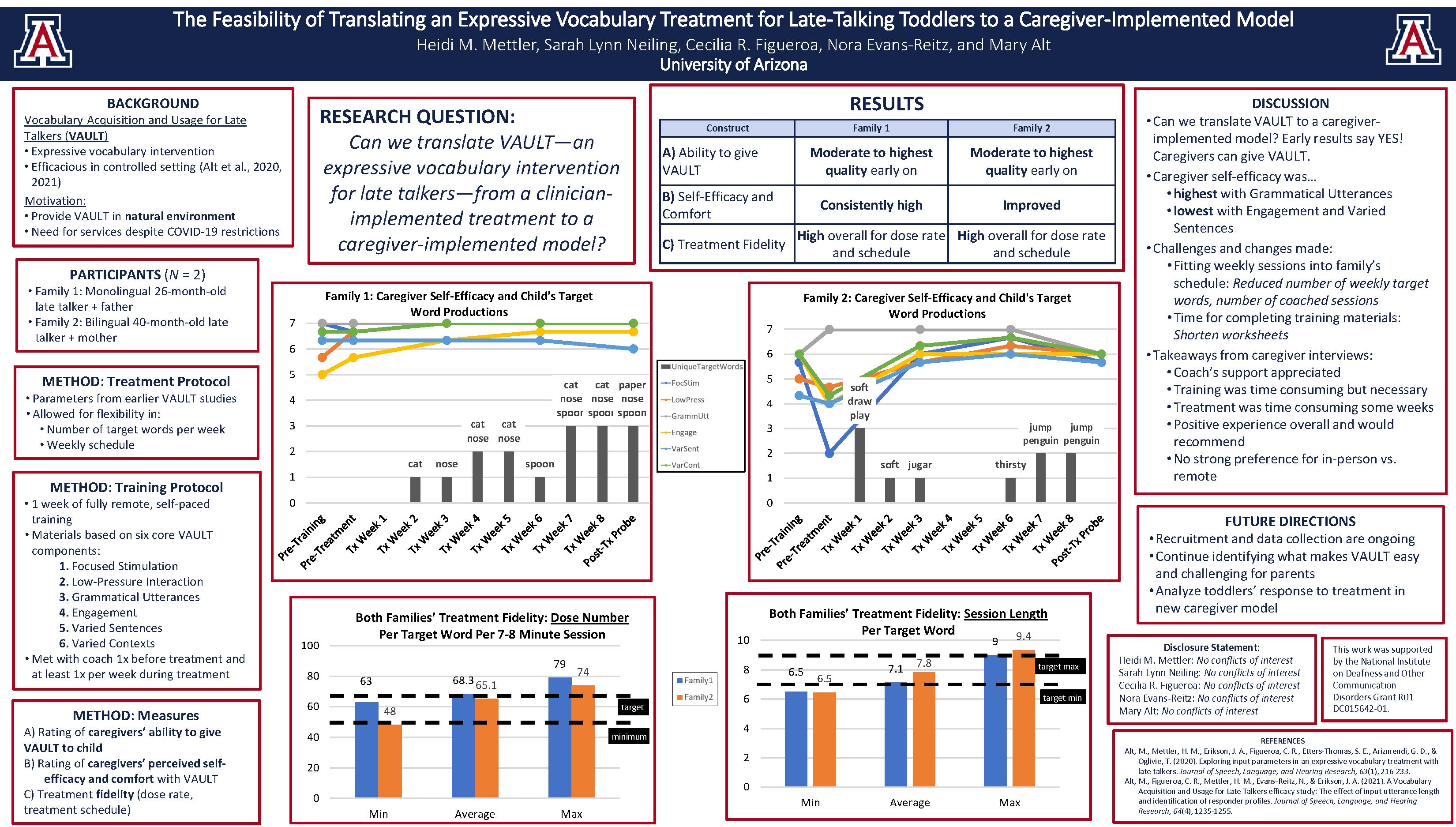Heidi Mettler - University of Arizona

The Feasibility of Translating an Expressive Vocabulary Treatment for Late-Talking Toddlers to a Caregiver-Implemented Model
Heidi M. Mettler1, Sarah Lynn Neiling1, Cecilia R. Figueroa1, Nora Evans-Reitz1, and Mary Alt1
1University of Arizona
Abstract
When provided in a controlled, laboratory setting, the Vocabulary Acquisition and Usage for Late Talkers (VAULT) treatment is an efficacious expressive vocabulary treatment for late-talking toddlers (Alt et al., 2020, 2021). However, it remains an open question whether VAULT can be translated to a caregiver-implemented model. This question was motivated by severely limited in-person interactions resulting from the COVID-19 pandemic and the desire to implement VAULT in a more naturalistic environment. Caregivers completed one week of VAULT training, after which they provided weekly coached and independent VAULT sessions to their child for eight weeks. Caregivers completed questionnaires and rating scales, which provided insight into the feasibility, treatment fidelity, and social validity of the VAULT caregiver-implemented model. Coaches completed weekly ratings of caregivers’ implementation of VAULT. Two families have completed the program, and two more are enrolled. We examined trends in the questionnaires and rating scales to determine whether caregivers could implement VAULT and what factors made VAULT easiest and most challenging. Caregivers were able to provide the VAULT treatment with moderate to high quality and fidelity. They demonstrated high self-efficacy and comfort with VAULT by the end of treatment. Results will inform future studies that aim to improve the translation of VAULT to an efficacious caregiver-implemented model.
This work was funded by the National Institute on Deafness and Other Communication Disorders Grant 1R01 DC015642-01.
